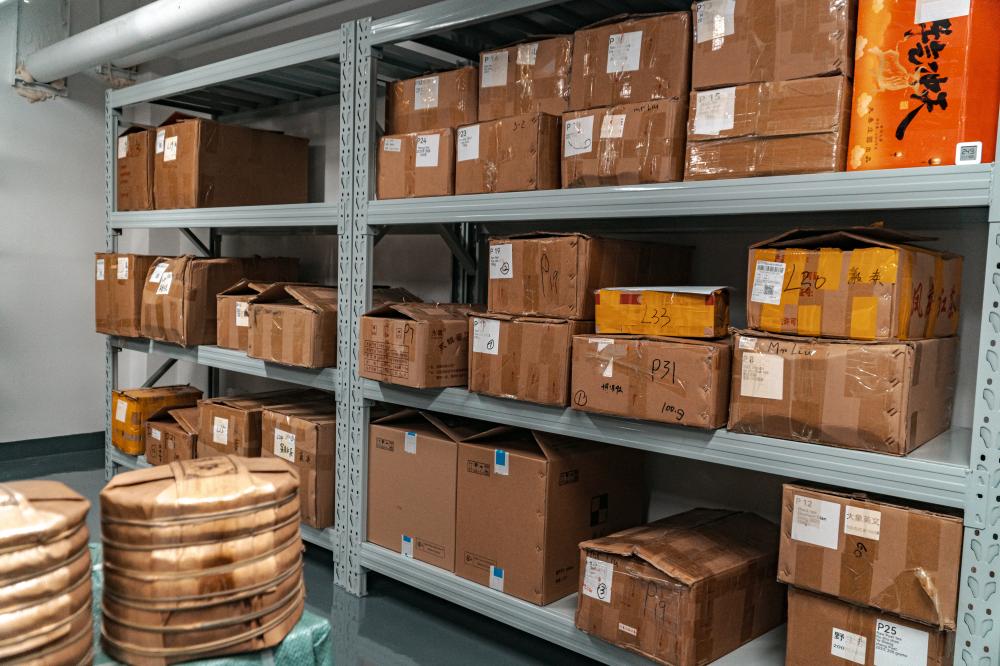
Why Managing Excess And Obsolete Inventory Massachusetts is Crucial
In the rapidly evolving market of Massachusetts, managing excess and obsolete inventory isn’t just a business task–it’s a survival strategy. Businesses face the dual challenge of maintaining inventory levels that support their operations without tying up capital or risking obsolescence. This is particularly critical in industries such as electronics and telecommunications, where product cycles are swift and technological advancements are constant. Efficient inventory management can mean the difference between staying competitive and falling behind.
Excess and obsolete inventory Massachusetts businesses encounter can lead to significant financial strain. Holding onto outdated stock not only clutters storage but also depreciates in value, impacting the bottom line. By actively managing inventory, companies can free up resources and reallocate them to more productive areas, such as innovation or market expansion. This proactive approach is vital for maintaining fluid operations and ensuring long-term success.
Challenges Faced by Massachusetts Businesses in Inventory Management
From my 20+ years of experience in the supply chain industry, I’ve observed that one of the primary challenges in managing excess and obsolete inventory Massachusetts firms face is the lack of visibility into their current stock levels. Businesses often operate with outdated or incomplete data, leading to poor decision-making and increased risk of obsolescence. This lack of visibility is compounded by the fast-paced nature of industries like electronics, where product life cycles are often short and unpredictable.
Another challenge is the environmental regulations specific to Massachusetts, which can complicate the disposal of obsolete inventory. Companies must navigate these regulations carefully to avoid fines and ensure compliance. Additionally, there is the ever-present risk of counterfeit components entering the supply chain, which poses both financial and reputational risks. To combat this, businesses must implement rigorous testing and verification processes to maintain the integrity of their inventory and protect their brand.
Key Strategies for Managing Excess And Obsolete Inventory Massachusetts
Throughout my career, I have identified several strategies that can effectively help Massachusetts businesses manage their inventory challenges. A successful approach begins with data-driven inventory analysis, leveraging cutting-edge software solutions to gain real-time visibility into stock levels and movement. This allows companies to make informed decisions about procurement and disposal.
- Implement inventory audits regularly to prevent accumulation.
- Adopt a just-in-time inventory system to align supply closely with demand.
- Secure partnerships with reliable distributors to ensure a steady flow of necessary components while avoiding overstocking.
- Invest in employee training to enhance skills in inventory management and regulatory compliance.
How Synergy Components Can Assist
Synergy Components specializes in providing solutions for excess and obsolete inventory Massachusetts requires. Our team has successfully helped companies like a mid-size engineering firm recover assets by reclaiming value from thousands of obsolete semiconductors. We’ve also aided a large telecom manufacturer by customizing power supplies, significantly reducing lead times and costs.
Our process generally includes the following steps:
- Assessment: Conduct a thorough audit to understand current inventory levels.
- Strategy Development: Formulate a tailored plan to address inventory challenges specific to Massachusetts regulations.
- Implementation: Execute the strategy, including the sale or disposal of obsolete stock and procurement of necessary components.
- Review: Continually monitor and optimize inventory management processes based on performance metrics.
This methodical approach ensures businesses can efficiently manage their resources while staying compliant with local regulations.
What Qualifies as an Excess And Obsolete Inventory Massachusetts Challenge?
In Massachusetts, excess and obsolete inventory challenges are typically characterized by a mismatch between stock levels and demand, resulting in an accumulation of outdated or slow-moving items. These challenges not only tie up capital but can also lead to storage inefficiencies and potential compliance issues.
Businesses should consider several factors when determining if their inventory qualifies as excess or obsolete, such as:
- Items that have not moved in a predetermined period.
- Products that are unlikely to sell due to changes in market demand or technology.
- Inventory nearing the end of its product lifecycle without planned consumption.

Why is managing excess and obsolete inventory crucial for Massachusetts businesses?
Managing excess and obsolete inventory is vital for businesses in Massachusetts, particularly due to the fast-paced technological environment. Imagine a tech company that invested heavily in a component for a new device, only to find that the market has shifted due to a novel advancement. Suddenly, that inventory becomes a financial burden rather than an asset. Efficient inventory management not only prevents situations like these but also frees up resources for innovation and expansion. Studies have shown that companies with proactive inventory management can significantly increase their financial flexibility and adapt more smoothly to market changes. How might your business benefit from improved inventory management practices?
What are some common challenges Massachusetts businesses face in inventory management?
Lack of visibility into stock levels is a significant challenge for businesses in Massachusetts. For instance, a telecom firm might think they’re well-stocked for the next quarter, only to realize that half of their inventory is obsolete due to a regulatory update. This situation is compounded by stringent environmental regulations that make disposal tricky. Moreover, the threat of counterfeit parts adds another layer of complexity. Many businesses have found that implementing robust data analytics and verification processes can mitigate these risks significantly. What strategies could be implemented in your organization to improve inventory visibility?
What are some effective strategies for managing excess and obsolete inventory?
Effective inventory management often begins with data-driven analysis to gain a clear picture of stock levels. A practical strategy is the just-in-time inventory system, which aligns supply closely with demand, reducing waste and unnecessary storage costs. Regular audits and strong partnerships with reliable distributors also play a crucial role. One Massachusetts company improved its inventory management by investing in employee training, which enhanced their team’s decision-making capabilities. How would training impact your organization’s approach to inventory management?
How can Synergy Components assist in managing inventory challenges?
Synergy Components offers tailored solutions to tackle excess and obsolete inventory issues. Recently, we helped a mid-size engineering firm recover significant value from outdated semiconductors. Our step-by-step approach, from auditing to strategy development and implementation, ensures compliance with Massachusetts regulations while optimizing inventory processes. With over 30 years of industry experience and a vast network of distributors, we provide clients with reliable and efficient solutions. Could your business benefit from a customized inventory management plan?
What qualifies as an excess or obsolete inventory challenge in Massachusetts?
In Massachusetts, inventory challenges are often marked by a mismatch between stock levels and market demand. For example, a retailer might hold onto seasonal products too long, resulting in obsolete inventory. Key indicators include items that have been stagnant for a set period or products unlikely to sell due to market shifts. An understanding of product life cycles and market trends can help businesses anticipate and manage potential challenges. What steps do you think your organization could take to better align inventory with market demands?
Why is the experience and expertise of Synergy Components valuable for managing inventory?
With three decades of experience, Synergy Components has honed its ability to provide efficient supply chain solutions tailored to electronic and telecom industries. Clients like Elise A. have credited us with preventing the purchase of counterfeit components, underscoring our commitment to reliability and quality. By leveraging our extensive network and industry knowledge, we ensure clients benefit from time-sensitive and cost-effective inventory management. How might a partnership with Synergy Components enhance your business’s operational efficiency?
Resources
- Massachusetts Government Official Website – The official website of the state government of Massachusetts, providing resources and information for businesses operating in the state.
- Massachusetts Institute of Technology (MIT) – A prestigious educational institution in Massachusetts known for its research and expertise in various fields, including technology and business.
- Harvard Business Review – A leading source for business news, insights, and research, offering valuable articles and publications on inventory management and business strategies.
Austin
TX
78734

